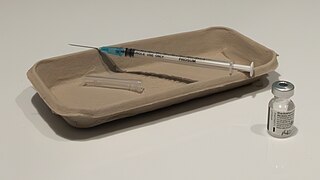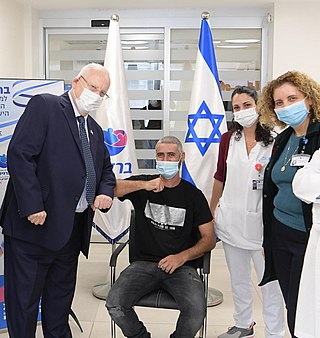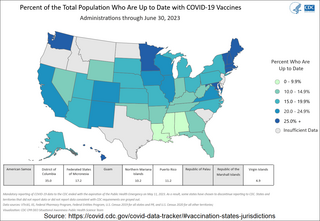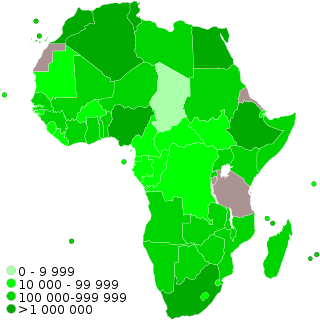Contents
| |||||
| Decades: | |||||
|---|---|---|---|---|---|
| See also: | Other events of 2022 List of years in Cambodia | ||||
Events in the year 2022 in Cambodia .
| |||||
| Decades: | |||||
|---|---|---|---|---|---|
| See also: | Other events of 2022 List of years in Cambodia | ||||
Events in the year 2022 in Cambodia .
Ongoing — COVID-19 pandemic in Cambodia
| | This section needs expansion. You can help by adding to it. (December 2022) |
The COVID-19 pandemic in Saskatchewan is part of an ongoing global pandemic of coronavirus disease 2019 (COVID-19), a novel infectious disease caused by severe acute respiratory syndrome coronavirus 2 (SARS-CoV-2).

The COVID-19 vaccination programme in the United Kingdom is an ongoing mass immunisation campaign for coronavirus disease 2019 (COVID-19) during the COVID-19 pandemic in the United Kingdom.
Events during the year 2021 in Bhutan.
The following is a timeline of the COVID-19 pandemic in the Republic of Ireland in 2021.

Israel's COVID-19 vaccination programme, officially named "Give a Shoulder", began on 19 December 2020, and has been praised for its speed, having given twenty percent of the Israeli population the first dose of the vaccines' two dose regimen in the span of three weeks.

India began administration of COVID-19 vaccines on 16 January 2021. As of 4 March 2023, India has administered over 2.2 billion doses overall, including first, second and precautionary (booster) doses of the currently approved vaccines. In India, 95% of the eligible population (12+) has received at least one shot, and 88% of the eligible population (12+) is fully vaccinated.

The general COVID-19 vaccination in Australia program began on 22 February 2021 in response to the COVID-19 pandemic, with the goal of vaccinating all willing people in Australia before 2022. Front-line workers and aged care staff and residents had priority for being inoculated, before a gradual phased release to less-vulnerable and lower-risk population groups throughout 2021. The Therapeutic Goods Administration (TGA) approved four vaccines for Australian use in 2021: the Pfizer–BioNTech vaccine on 25 January, the Oxford–AstraZeneca vaccine on 16 February, Janssen vaccine on 25 June and the Moderna vaccine on 9 August. Although approved for use, the Janssen vaccine was not included in the Australian vaccination program as of June 2021.
COVID-19 vaccination in Romania started on 27 December 2020. It was announced that the process would be divided into three phases. Medical personnel would be vaccinated first, followed by the population at risk, and finally by the rest of the population. Vaccination was declared free and non-mandatory. As of March 2022, five types of vaccines were authorized to be used in Romania. This is the largest vaccination campaign in the modern history of Romania.

The COVID-19 vaccination programme in the Republic of Ireland is an ongoing mass immunisation campaign that began on 29 December 2020 in response to the COVID-19 pandemic in the Republic of Ireland. Ireland's vaccination rollout has been praised as one of the most successful rollouts in the world and was ranked number one in the European Union in terms of its percentage of adult population fully vaccinated, and was also ranked number one in the EU for the number of booster vaccines administered.

COVID-19 vaccination in Canada is an ongoing, intergovernmental effort coordinated between the bodies responsible in the Government of Canada to acquire and distribute vaccines to individual provincial and territorial governments who in turn administer authorized COVID-19 vaccines during the COVID-19 pandemic in Canada. Provinces have worked with local municipal governments, hospital systems, family doctors and independently owned pharmacies to aid in part, or in full with vaccination rollout. The vaccination effort in full is the largest such immunization effort in the nation's history. The vaccination effort began December 14, 2020, and is currently ongoing.

The COVID-19 vaccination campaign in the United States is an ongoing mass immunization campaign for the COVID-19 pandemic in the United States. The Food and Drug Administration (FDA) first granted emergency use authorization to the Pfizer–BioNTech vaccine on December 10, 2020, and mass vaccinations began four days later. The Moderna vaccine was granted emergency use authorization on December 17, 2020, and the Janssen vaccine was granted emergency use authorization on February 27, 2021. It was not until April 19, 2021, that all U.S. states had opened vaccine eligibility to residents aged 16 and over. On May 10, 2021, the FDA approved the Pfizer-BioNTech vaccine for adolescents aged 12 to 15. On August 23, 2021, the FDA granted full approval to the Pfizer–BioNTech vaccine for individuals aged 16 and over.
On 29 January 2021, Algeria launched a COVID-19 vaccination campaign, a day after receiving its first shipment of 50,000 doses of the Russia's Sputnik V vaccine. As of 6 June 2021, around 2.5 million doses have been administered. Algeria is currently vaccinating its population with both Sputnik V and Oxford-AstraZeneca vaccines.

COVID-19 vaccination in New Zealand began on 20 February 2021, and will continue throughout the pandemic with the goal of vaccinating all willing New Zealanders aged 5 or older. Those aged 5 to 11 require a parent, caregiver or legal guardian accompany them to their appointment and provide consent for them to be vaccinated. As of 1 September, anyone in New Zealand, regardless of their immigration status, is eligible to be vaccinated.
On 23 February 2021, Senegal began its national vaccination program against the COVID-19. As of 10 March, 68,205 people in Senegal have been able to be vaccinated.

COVID-19 vaccination programs are ongoing in the majority countries and territories in Africa, with 51 of 54 African countries having launched vaccination programs by July 2021. As of October 2023, 51.8% of the continent's population is fully vaccinated with over 1084.5 million doses administered.

Bhutan has promised a free COVID-19 vaccination to all of its citizens, both inside and outside the country. It started mass vaccinations on 27 March 2021.
The COVID-19 vaccination campaign in Quebec was a provincial effort to distribute and administer vaccines against COVID-19.
COVID-19 vaccination in Iceland is an effort to immunize the adult population of Iceland due to the COVID-19 pandemic. As of July 2021, more than 260,000 individuals had received at least one dose of COVID-19 vaccine, which was over 78% of the country's population. On November 21, 2021, 90% of the target population had been fully vaccinated, while around 1 in 5 people had received a booster on top of that; by December 9, 2021, the share of the population having received a booster shot exceeded 50%. On December 13, 2021, the country began offering Pfizer vaccinations to children aged 5–11.
The COVID-19 vaccination campaign began in Fiji on the first quarter of 2021 and will continue throughout the year with the goal of vaccinating all eligible Fijians. The government has made it mandatory for all eligible adults to take the COVID-19 vaccines.
COVID-19 vaccination in Ontario began in December 2020, when the first doses of the Pfizer-BioNTech COVID-19 vaccine were administered. In February 2021, shipments for both the Pfizer and Moderna vaccines increased significantly. By May 2021, over 50 percent of Ontarians had received their first dose. By the beginning of 2022, over 80 percent of Ontarians had received their first dose.